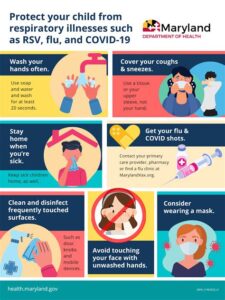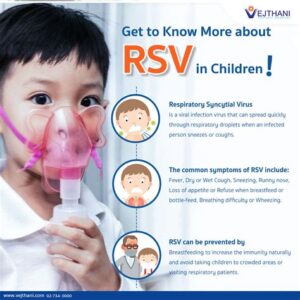Explore the benefits, challenges, and future considerations of co-administering flu and RSV vaccines, including insights from clinical trials on immune response and effectiveness.As the cold months approach, the need for effective vaccinations becomes paramount in safeguarding public health. The convergence of flu and respiratory syncytial virus (RSV) seasons raises questions about the potential for administering both vaccines simultaneously. This blog post delves into the benefits of combining flu and RSV vaccines, highlighting the convenience and enhanced protection they may offer. However, the journey to co-administration isn’t without its hurdles, and we’ll explore the potential challenges that healthcare providers might face. Current clinical trials are paving the way for innovation, allowing us to understand the efficacy and safety of these combined vaccinations. Additionally, we’ll discuss the impact on immune response and overall effectiveness, setting the stage for future considerations in co-vaccination strategies. Join us as we navigate the landscape of flu and RSV vaccines, ultimately aiming for a healthier future for all.
Benefits of Combining Flu and RSV Vaccines
The combination of Flu and RSV vaccines can provide a more robust approach to public health, especially during the respiratory virus season. By administering these vaccines together, we may enhance vaccine coverage and improve overall community immunity against two prevalent respiratory illnesses.
One of the primary benefits of combining these vaccines is the potential for increased patient compliance. With a single visit for immunization, individuals are more likely to get vaccinated, reducing the likelihood of missing out on necessary vaccinations. This is particularly important for vulnerable populations who may require both vaccines to protect against severe illness.
Additionally, co-administration of the Flu and RSV vaccines could lead to easier resource allocation in healthcare settings. By streamlining vaccination processes, healthcare providers can save time and effort, ultimately leading to lower costs and higher efficiency in the public health system.
Potential Challenges of Co-Administering Vaccines
Co-administering the flu and RSV vaccines presents various challenges that healthcare providers must navigate to ensure effective vaccination strategies. Understanding these challenges is crucial for optimizing public health responses, especially during seasons when both viruses circulate widely.
One of the primary challenges is the immune response to combined vaccines. When given simultaneously, the body’s immune system might react differently compared to when vaccines are administered separately. This variability can lead to either an enhanced or diminished immune response, raising questions about the effectiveness of concurrently administered vaccines.
Additionally, there are logistical challenges associated with co-administration. These include ensuring that adequate stock of both vaccines is available, training healthcare personnel on administering multiple vaccines simultaneously, and monitoring patients for any potential adverse reactions. The complexity of managing these processes can pose significant barriers to effective vaccination campaigns, particularly in resource-limited settings.
Clinical Trials on Combined Flu and RSV Vaccines
Recent clinical trials have focused on the potential of combining the influenza and respiratory syncytial virus (RSV) vaccines into a single immunization to enhance public health outcomes. These trials are essential for determining the safety and efficacy of co-administering these vaccines, especially in vulnerable populations.
Many studies are underway, examining how a combined vaccine impacts the immune response compared to administering these vaccines separately. Early-phase trials have shown promise, with participants reporting manageable side effects and a robust immune response to both viruses.
| Trial Name | Phase | Participant Group | Status |
|---|---|---|---|
| VAX-Comb | I/II | Adults 18-65 | Ongoing |
| Pediatrics RSV-Flu | II | Children 6 months – 5 years | Recruiting |
| Flu/RSV Combo 2023 | III | Older Adults 65+ | Planned |
As these clinical trials progress, researchers are optimistic about the potential for a combined vaccine to not only simplify the vaccination process but also improve uptake rates. The ultimate goal is to mitigate the burdens of both influenza and RSV on public health systems. Ongoing analysis and patient feedback will continue to shape the approach toward co-administered vaccines.
Impact on Immune Response and Effectiveness
As the medical community explores the potential for combined flu and RSV vaccines, understanding their impact on immune response and effectiveness becomes crucial. The simultaneous administration of multiple vaccines may enhance or hinder the body’s ability to mount a robust immune response.
Research indicates that combining the flu vaccine with the RSV vaccine could lead to an improved immune response due to the shared mechanisms involved in vaccine-induced immunity. In many cases, vaccines that target different respiratory pathogens can work synergistically to boost overall immunity, especially in vulnerable populations such as the elderly and young children.
However, challenges remain, including the potential for increased side effects or reduced effectiveness of one or both vaccines when given together. Studies have begun to assess these factors, helping scientists understand how co-administration can be optimized to ensure strong immunity against both viruses while maintaining safety and efficacy.
Future Considerations for Co-Vaccination Strategies
As healthcare providers and researchers continue to explore the potential of co-vaccination strategies, several future considerations are essential for optimizing their application. The combination of the Flu and RSV vaccines represents a significant advancement in public health, particularly in the context of respiratory illnesses that share similar transmission modes and vulnerable patient populations.
One major consideration is the timing of vaccination. Health authorities will need to evaluate the most effective schedules for administering these vaccines together to enhance immune response while minimizing potential side effects. Studies may focus on the intervals between doses and the age groups that could benefit the most from concurrent vaccinations.
Furthermore, education and public awareness campaigns will be crucial. Stakeholders must ensure that both healthcare professionals and the public understand the benefits and safety of receiving the Flu and RSV vaccines in a combined format. This approach can help increase vaccination rates and promote better health outcomes, particularly during peak seasons of respiratory infections.
Lastly, as new variants of influenza and RSV emerge, ongoing clinical research will be vital to assess the long-term effectiveness of co-vaccination strategies. This research could lead to updates in vaccine formulations and recommendations, ensuring that both immunity and public health are prioritized in our evolving landscape.
Frequently Asked Questions
What are the main benefits of receiving the flu and RSV vaccines together?
Receiving both vaccines together can enhance convenience and ensure better protection against respiratory infections, particularly for vulnerable populations like the elderly and young children.
Are there any safety concerns about getting the flu and RSV vaccines at the same time?
Current studies indicate that it is safe to receive both vaccines concurrently, with no significant increase in adverse effects compared to receiving them separately.
Who is recommended to get the flu and RSV vaccines?
The flu and RSV vaccines are particularly recommended for high-risk groups such as infants, elderly individuals, and those with underlying health conditions.
How effective are the flu and RSV vaccines when administered together?
Studies suggest that administering the vaccines together does not compromise their effectiveness; both can provide robust protection against their respective viruses when given as recommended.
Can I get the flu and RSV vaccines during my routine checkup?
Yes, many healthcare providers offer both vaccines during routine check-ups, making it an opportune time to stay updated on your vaccinations.
What should I expect after getting the flu and RSV vaccines together?
After receiving the vaccines, some individuals may experience mild side effects such as soreness at the injection site, fatigue, or low-grade fever, which typically resolve within a few days.
When is the best time to get the flu and RSV vaccines?
It’s generally recommended to get vaccinated against flu and RSV before the onset of the respiratory illness season, ideally in the fall or early winter months.





